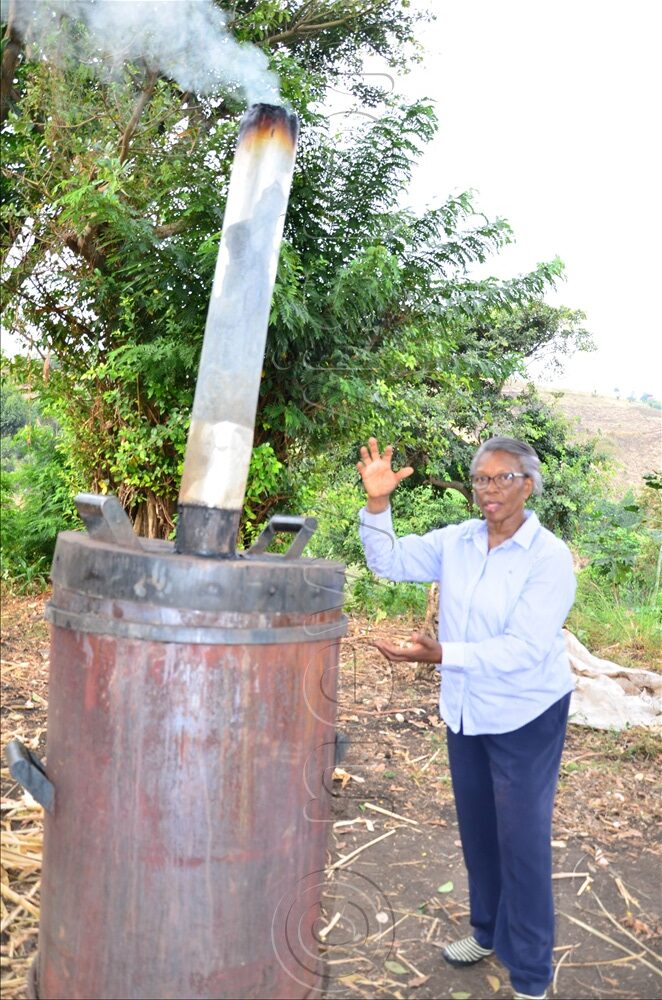Joan Kantu, a well-known farmer from Masongora village in Fort Portal, Kabarole district, has embraced a sustainable manure production method known as biochar.
This technique not only enhances soil fertility but also improves carbon retention in the soil, making it an effective solution for long-term agricultural sustainability.
She says the process begins with collecting organic materials such as cow dung, goat droppings, corn cobs, and other biodegradable waste.
These materials are then placed in a sealed drum and burned under low-oxygen conditions. This controlled burning process, known as pyrolysis, transforms the waste into rich, carbon-dense manure that significantly improves soil structure and nutrient retention.
Kantu has seen remarkable improvements in her farm’s productivity since she adopted biochar.
“Before using biochar, my crops would sometimes suffer from poor soil conditions. Now, my yields have increased, and the soil retains moisture much better,” she says.

She applies the biochar directly to her fields, mixing it with compost to enhance its effectiveness. This practice ensures that nutrients are slowly released into the soil, providing long-term fertility benefits.
Gideon Zakke, an agronomist, explains how biochar works to improve soil health.
“Biochar acts like a sponge, holding nutrients and water in the soil for longer periods. It creates a favourable environment for beneficial microorganisms, which break down organic matter and release essential nutrients to plants,” he says.
Zakke adds that biochar is particularly useful in areas with poor soils because it improves soil texture, aeration, and nutrient availability.
Beyond increasing crop yields, biochar also plays a role in climate change mitigation. By trapping carbon in the soil rather than releasing it into the atmosphere as carbon dioxide, biochar reduces greenhouse gas emissions.
Kantu believes this method is the future of sustainable farming.
“It’s not just about increasing yields; it’s about protecting the environment and ensuring long-term soil health,” she says.
By adopting biochar as a soil amendment, more farmers can improve their productivity while contributing to a more sustainable agricultural system, he explains.





